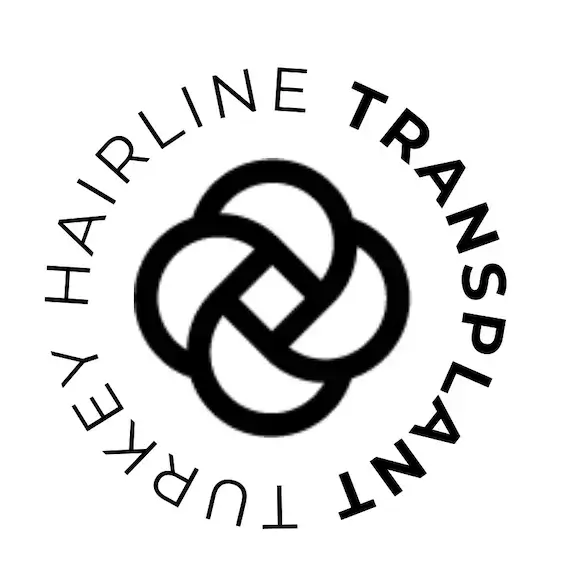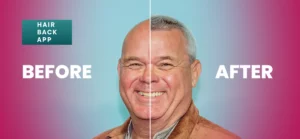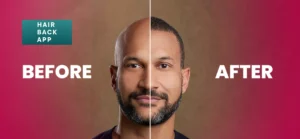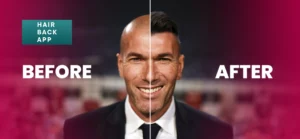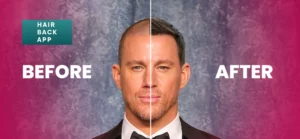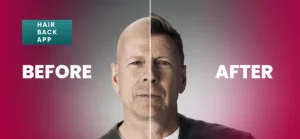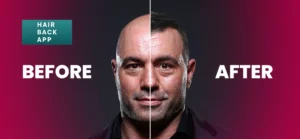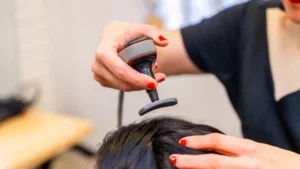What are the most important factors influencing hair growth? This query forms the bedrock of our exploration into the intricate dynamics that govern the lush mane many desire. Unraveling the mysteries behind why some individuals boast resilient and flourishing locks while others grapple with hair-related concerns necessitates a comprehensive understanding of the key elements at play.
In this article, we embark on a journey to dissect and elucidate the exact nuances of the factors that wield substantial influence over the growth and vitality of our hair. From internal physiological aspects to external environmental influences, we will delve into the intricate web of contributors that collectively shape the health and appearance of our crowning glory.
Overview of Hair Growth: Navigating the Intricacies of the Hair Growth Cycle
Before we delve into the specific factors influencing hair growth, to answer the question What are the most important factors influencing hair growth, it’s crucial to establish a foundational understanding of the hair growth cycle. Hair, a fascinating structure composed of keratinized cells, undergoes a cyclical process that consists of distinct phases: anagen, catagen, and telogen.
- Anagen Phase: This is the growth phase, where hair follicles are actively producing new cells, leading to an increase in hair length. The duration of the anagen phase varies among individuals, influencing the overall length of their hair.
- Catagen Phase: A transitional phase, catagen signals a reduction in cell division and metabolic activity within the hair follicles. This relatively short phase prepares the follicle for the resting period.
- Telogen Phase: During telogen, hair follicles are in a resting state. Existing hair remains attached to the follicle but does not actively grow. Following telogen, the cycle restarts with the return to the anagen phase.
Now, how do these phases relate to the most important factors influencing hair growth? The speed at which hair progresses through these stages, and the duration of the anagen phase, are critical factors. The health and efficiency of this cycle determine the overall thickness and length of your hair.
Nutritional Factors: Nourishing Your Hair from Within
Now that we’ve established the significance of the hair growth cycle, let’s turn our attention to the pivotal role that nutrition plays in influencing the health and vibrancy of your hair. The adage “you are what you eat” holds particularly true when it comes to your hair. A well-balanced diet provides the essential building blocks and nutrients that contribute to robust hair growth. An often cited study published by the JAMA Network shows the effectiveness of nutritional supplements. Some of the key ingredients in those supplements are:
- Biotin, The Hair Vitamin: Biotin, also known as vitamin H, stands out as a key player in the quest for healthy hair. This B-vitamin plays a crucial role in the synthesis of keratin, the protein that forms the structure of hair. Foods rich in biotin, such as eggs, nuts, and leafy greens, can contribute to the overall strength and resilience of your hair.
- Iron and Zinc, Blood Flow and Scalp Health: Iron and zinc are integral for maintaining healthy blood circulation, including the blood flow to your scalp. Insufficient levels of these minerals can lead to hair shedding. Incorporating iron-rich foods like lean meats and legumes, along with zinc sources like seeds and whole grains, supports the nourishment of your hair follicles.
- Vitamins A and E, Antioxidants for Hair Health: Vitamins A and E act as antioxidants, protecting your hair follicles from oxidative stress. Carrots, sweet potatoes, and spinach are excellent sources of vitamin A, while nuts and seeds provide vitamin E. Including these in your diet aids in safeguarding your hair against damage and promoting a healthy scalp.
Hormonal Influences: Balancing Act for Hair Health
Moving beyond the realm of nutrition, another crucial determinant of hair growth lies in the intricate dance of hormones within your body. Hormones, the chemical messengers orchestrating various physiological processes, significantly influence the health and vitality of your hair.
- Hormonal Milestones: Throughout life, hormonal fluctuations occur during key milestones such as puberty, pregnancy, and menopause. These transitions bring about changes in hormone levels, directly impacting the hair growth cycle. For instance, during pregnancy, elevated levels of certain hormones can extend the anagen phase, resulting in thicker and more lustrous hair. Conversely, hormonal shifts during menopause may lead to hair thinning and increased shedding.
- Hormonal Imbalances and Hair Health: Beyond life stages, hormonal imbalances can disrupt the delicate equilibrium required for optimal hair growth. Conditions such as polycystic ovary syndrome (PCOS) and thyroid disorders can manifest in hormonal irregularities, negatively affecting the hair growth cycle. Seeking medical guidance to address hormonal imbalances is crucial for those experiencing unexplained changes in hair thickness or texture.
Genetic Factors: Decoding the Influence of Inherited Traits on Hair Growth
As we answer the question: what are the most important factors influencing hair growth, the impact of genetics emerges as a fundamental determinant. The unique characteristics of your hair, including its texture, thickness, and susceptibility to certain conditions, are intricately woven into the fabric of your genetic code.
Hereditary Patterns in Hair Growth: Genetic factors play a pivotal role in dictating the baseline attributes of your hair. If your family has a history of thick, lustrous locks, it’s likely that these genetic traits will be passed down to you. Conversely, a genetic predisposition to conditions like male-pattern baldness or female-pattern hair loss can manifest in specific patterns of hair thinning.
Understanding Androgenetic Alopecia: Androgenetic alopecia, a common form of hair loss with a strong genetic component, affects both men and women. In this condition, the hormone dihydrotestosterone (DHT) interacts with genetically susceptible hair follicles, leading to a gradual miniaturization of the follicles and eventual hair thinning. Recognizing the genetic underpinnings of conditions like androgenetic alopecia is crucial for implementing proactive measures to manage or slow down the progression of hair loss.
What are the Most Important Factors Influencing Hair Growth: Unveiling the Environmental Factors
Beyond the realms of genetics and internal physiology, the environment in which we live plays a significant role in shaping the health and vitality of our hair. Various external factors can either nurture or challenge the natural growth cycle of our locks.
- Sunlight Exposure and Vitamin D: Sunlight, a natural source of vitamin D, has both positive and negative effects on hair health. While vitamin D is essential for the formation of new hair follicles, excessive sun exposure can lead to dryness and damage. Striking a balance by enjoying moderate sunlight and protecting your hair from prolonged exposure is key.
- Pollution and Hair Health: Urban environments often expose us to pollution, which can have adverse effects on hair. Particulate matter and pollutants in the air can accumulate on the scalp, potentially leading to inflammation and hair damage. Regular cleansing and protective hairstyles can mitigate the impact of environmental pollutants.
- Humidity and Moisture Levels: Climate conditions, particularly humidity, can influence the moisture levels in your hair. Excessively dry or humid environments may contribute to frizz or limpness. Adjusting your hair care routine to accommodate the specific needs of your climate can help maintain optimal moisture balance.
Continuing our exploration of what are the important factors influencing hair growth, this section underscores the role of the environment in shaping the condition of your hair. As we transition to the next sections, we’ll delve into lifestyle habits and hair care practices, uncovering how daily choices and routines can significantly contribute to or impede the natural growth and resilience of your hair.
Lifestyle Habits: The Ripple Effect on Hair Growth
In our quest to answer the question “what are the most important factors influencing hair growth, we now turn our attention to lifestyle habits — daily choices that can have a profound impact on the health and vitality of your locks. From stress management to overall well-being, these habits contribute to the intricate tapestry of factors influencing your hair.
- Stress and Cortisol Levels: High stress levels trigger the release of cortisol, a hormone that, in excess, can disrupt the normal hair growth cycle. Chronic stress may lead to conditions like telogen effluvium, a reversible form of hair shedding. Incorporating stress-reducing practices, such as meditation or exercise, can positively influence your hair health.
- Physical Activity and Blood Circulation: Regular exercise not only contributes to overall well-being but also enhances blood circulation, delivering vital nutrients to your hair follicles. Improved blood flow can positively impact the anagen phase of the hair growth cycle, promoting healthy and robust hair.
- Balanced Diet and Hydration: The significance of a balanced diet extends beyond nourishing your hair from within. Proper hydration is equally crucial for maintaining the health of your scalp and hair. Drinking an adequate amount of water supports the transportation of nutrients to the hair follicles and helps prevent dryness.
Final Tips: Cultivating a Holistic Approach to Your Hair Health Journey
As we conclude our comprehensive exploration of the important factors influencing hair growth, it’s time to translate knowledge into action. Armed with a deeper understanding of the intricacies that contribute to the health and vitality of your hair, let’s embark on a journey of proactive care and intentional choices.
- Assess Your Lifestyle: Take a moment to reflect on your daily habits, stress levels, and nutritional choices. Identifying areas for improvement and implementing small, sustainable changes can have a profound impact on your overall well-being, including the health of your hair.
- Tailor Your Hair Care Routine: Consider your hair type, environmental factors, and specific needs. Tailor your hair care routine accordingly, opting for products and practices that align with your hair’s unique characteristics. From gentle cleansing to protective styling, each choice contributes to the overall health of your locks.
- Prioritize Stress Management: Recognize the role of stress in influencing hair health. Incorporate stress-reducing activities into your routine, whether it’s meditation, yoga, or a leisurely walk. Creating moments of calm not only benefits your mental well-being but also supports the balance of hormones crucial for healthy hair growth.
- Stay Informed and Adaptive: The field of hair care is dynamic, with ongoing research uncovering new insights. Stay informed about emerging trends and breakthroughs, and be open to adapting your routine based on the latest knowledge. Science and self-awareness
- Share Your Knowledge: If you’ve found valuable insights in this exploration, share them with others. Spark conversations about holistic hair care within your community, fostering a collective understanding of the factors that contribute to vibrant and healthy locks.
Remember, optimal hair health is a continuous and evolving process. By cultivating a holistic approach that integrates internal and external factors, you empower yourself to make choices that resonate with your well-being. Here’s to a journey of self-discovery and intentional care, where your hair becomes not just a part of you, but a reflection of your vitality and individuality.
Contact Our Hair Specialists
If you find yourself grappling with hair loss and are on the quest for a lasting solution, maybe you have already considered the transformative possibilities of a hair transplant? If you’re a hair transplant candidate our team of experts is dedicated to guiding you through every step of this journey towards reclaiming the confidence and vibrancy that comes with a full head of hair.
Our skilled professionals are experts on finding the best deals on a Turkey hair transplant package that fits your individual needs. They’re here to provide personalized consultations, answering your questions and addressing your concerns. We understand the unique nature of your hair loss journey, and we’re committed to crafting a tailored solution that aligns with your individual needs.
